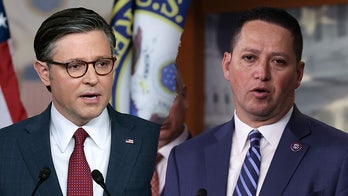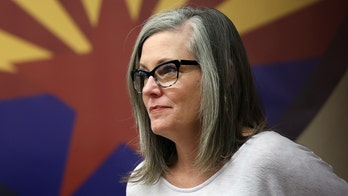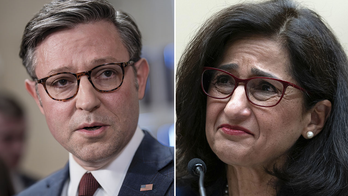Brushing aside tradition, the Obama administration is pushing for federal authority to regulate the nation's subway and light commuter rail systems following last summer's subway crash in Washington, D.C., that left nine people dead.
Next week, Transportation Secretary Ray LaHood will formally ask Congress to give his department authority to regulate and oversee those rail systems, a move that some Republicans on Capitol Hill worry is another alarming example of an ever-expanding federal government.
"In this case, it sounds good, safety and enforcement over transit systems, but it may not be that effective," Rep. John Mica, R-Fla., told Fox News. "It could be costly but not that effective."
Nearly 10 million people across the country rely on subways and commuter rail systems each day. Experts insist it's safer to ride a subway in a major metropolitan area than to drive to work. But as systems age and budgets tighten, there are concerns that local subway systems are becoming more prone to accidents.
Historically, the federal government has left oversight of the subway systems to the states, unlike other forms of transportation.
But after the subway collision in Washington, LaHood decided it was time for the federal government to get more involved.
In June, a Metro transit train smashed into the rear of another at the height of the capital city's evening rush hour, killing nine people and injuring 76 others as the front end of the trailing train jackknifed violently into the air and fell atop the first.
It was the worst accident in the Metrorail system's 33-year history. The National Transportation Safety Board is still investigating the cause and will hold public hearings in February.
LaHood has the unqualified support of the NTSB.
"We believe there needs to be standards established, whether it be for track inspections or crash worthiness of their cars, putting recorders on the cars," said Deborah Hersman, chairwoman of the NTSB. "We really think that there needs to be some federal oversight to make that happen."
Surprisingly, subway system managers around the country initially seem open to federal oversight -- but worry about how they will pay for the things that federal regulators would require.
"When recommendations come up that you ought to take such and such sort of action, sometimes those can be costly indeed," said William Millar, president of the American Public Transportation Association.
"Let's make sure that the mandate's sensible, that the mandates are fundable," John Cataoe, general manager of Metro, said.
Fox News' Brian Wilson and The Associated Press contributed to this report.




